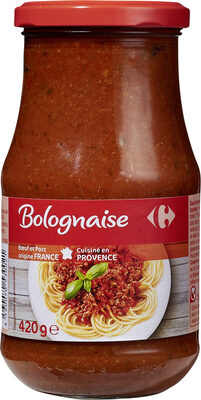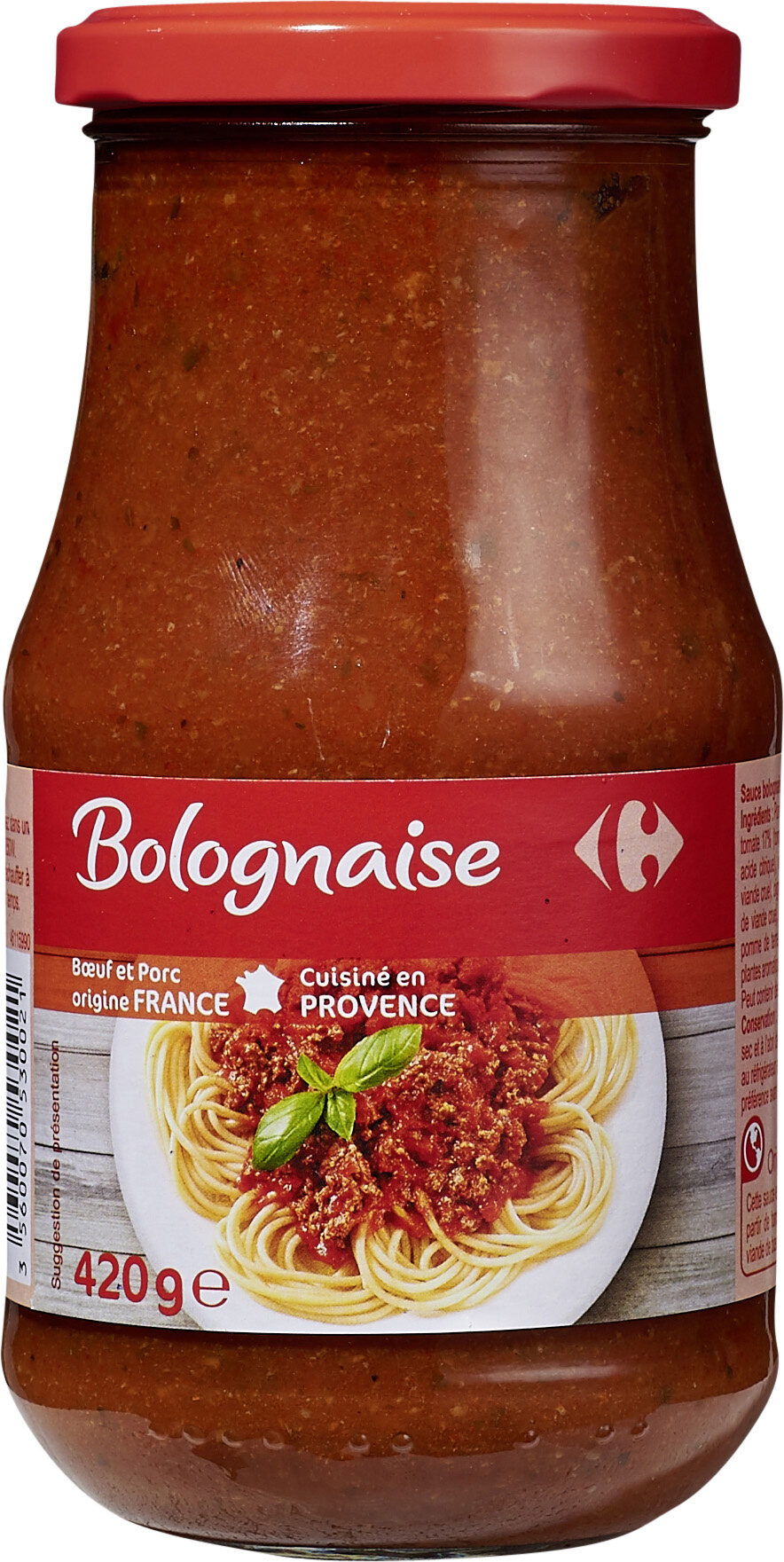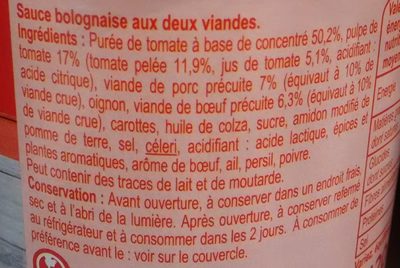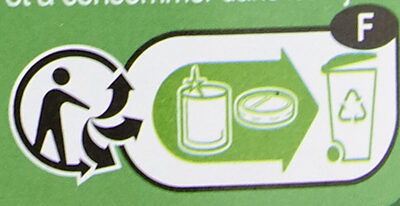Bolognaise - Carrefour - 420 g
This product page is not complete. You can help to complete it by editing it and adding more data from the photos we have, or by taking more photos using the app for Android or iPhone/iPad. Thank you!
×
Some of the data for this product has been provided directly by the manufacturer Carrefour.
Barcode: 3560070530021 (EAN / EAN-13)
Common name: Sauce tomate cuisinée à la viande bovine et aux légumes (9%), aromatisée.
Quantity: 420 g
Brands: Carrefour
Categories: Condiments, Meats and their products, Sauces, Meat-based sauces, Pasta sauces, Meat-based pasta sauces, Bolognese sauces, Groceries
Labels, certifications, awards:
French meat, French beef, Green Dot, Made in France
Origin of the product and/or its ingredients: Cette sauce est cuisinée à Camaret-sur-Aigues en France, à partir de tomates de diverses origines accompagnées de viande de bœuf et de viande de porc d'origine française.
Producer: Fabriqué en France par EMB 84029 A pour Interdis.
Traceability code: FR 84.029.002 CE - Camaret-sur-Aigues (Vaucluse, France), EMB 84029A - Camaret-sur-Aigues (Vaucluse, France), FR 08.402.9002 CE - Saulces-Monclin (Ardennes, France)
Stores: Carrefour, carrefour.fr
Countries where sold: France
Matching with your preferences
Other information
Other information: Bœuf et Porc origine France Cuisiné en Provence
Preparation: Au micro-ondes : Retirez le couvercle du bocal ou versez dans un récipient adapté couvert puis réchauffez 1 à 2 minutes à 850W. À la casserole : Versez dans une casserole et faites réchauffer à feu très doux pendant 5 minutes en remuant de temps en temps.
Conservation conditions: Conservation : Avant ouverture, à conserver à température ambiante, dans un endroit frais, sec et à l'abri de la lumière. Après ouverture, à conserver refermé au réfrigérateur et à consommer dans les 2 jours. Pour une dégustation optimale, à consommer de préférence avant le: voir sur le couvercle.
Customer service: Interdis - TSA 91431 - 91343 MASSY Cedex - France
Report a problem
Data sources
Product added on by openfoodfacts-contributors
Last edit of product page on by spotter.
Product page also edited by aleene, carrefour, date-limite-app, driveoff, ecoscore-impact-estimator, kiliweb, manu1400, mbe, org-carrefour, packbot, quechoisir, segundo, teolemon, yuka.WmI4cU5mazkrdHhWcHN3OC9pclR3dEZGNjVTWGVsNjBJT3NOSWc9PQ.












